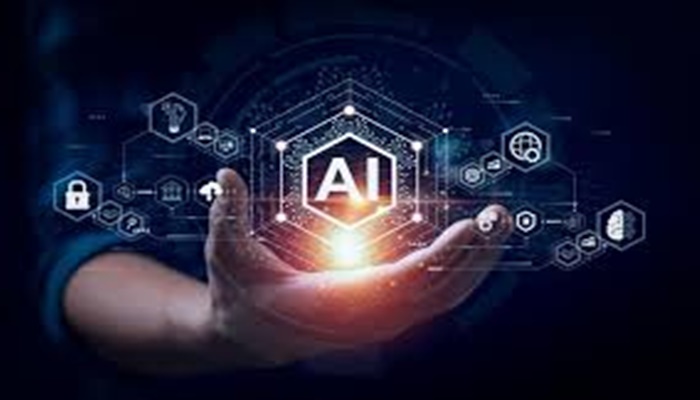Humans crave comfort and often more than we admit. Since the earliest days of civilization, a significant share of our collective intellectual energy has gone into reducing effort and streamlining tasks. Today, with rapid advances in AI, the prospect of near-total comfort feels closer than ever. Artificial Intelligence delivers on its promise: instant solutions at the push of a button, requiring minimal thought or effort. Crucially, this power is now widely accessible such that even schoolchildren and college students can harness it. But this raises a pressing question: in an age where AI can replicate answers effortlessly, do educational credentials still serve as genuine signals of proficiency?
The capabilities of AI are well established and so is the threat it poses to the job market. While large-scale job displacement may still lie in the future, there is a more immediate risk that today’s students may be unintentionally undermining their own potential by misusing AI and that is because AI which can already perform the tasks of an average white-collar worker with surprising competence is naturally able to perform academic work such as assignments, essays, projects, dissertations, and even basic PhD thesis with ease. And unsurprisingly, students are quick to exploit this. Yet, these traditional academic challenges were never just about content mastery because they were essential in cultivating the core skills that underpin all human progress such as critical thinking, problem-solving, innovation, creativity, analysis, time management, and research, among others. The pressure to perform academically once pushed students to sharpen these skills. But with AI now offering instant solutions, we risk producing an entire generation of graduates, even in vital fields like medicine, engineering, and architecture, who may lack the real-world competence their degrees are meant to signify.
In such a scenario, one might expect schoolteachers and university professors to act as gatekeepers, identifying and rejecting AI-generated work. However, this expectation does not reflect the current reality. A 2024 study by German researchers titled ‘Do Teachers Spot AI? Evaluating the Detectability of AI-Generated Texts Among Student Essays’ found that educators struggled to reliably distinguish between human-written and AI-generated argumentative essays. Similarly, research from the University of Reading in the UK reported that the probability of a professor accurately identifying AI-written submissions is less than 10 per cent. This suggests a troubling possibility wherein students may increasingly pass through the entire education system (from high school to university) without acquiring any meaningful skills. With India already grappling with the daunting task of skilling the workforce, this could significantly exacerbate the challenges at hand.
India faces a serious skills gap. The National Skill Development Corporation (NSDC) estimates a shortfall of 29 million skilled workers, with demand at 103 million and supply at just 74 million. The India Skills Report 2024 shows only 51.25 per cent of youth are employable, while the Economic Survey 2024–25 reveals that just 8.25 per cent of graduates work in roles matching their qualifications. Over half of all graduates and 44 per cent of postgraduates are employed in low-skill jobs. These trends highlight a growing disconnect between educational output and labour market needs. In this context, the unregulated use of AI in education introduces an additional layer of risk. Traditional systems are already under scrutiny for failing to equip students with practical, job-ready skills. With AI now widely accessible and capable of completing academic tasks with minimal human effort, there is a real danger that students could pass through educational institutions without ever developing the core competencies needed for the workforce.
The effects of these dynamics would be felt in the labour market eventually. When everyone has access to AI and its use becomes the norm in completing coursework, recruiters will naturally become more sceptical of academic qualifications. This scepticism isn’t unfounded because if employers observe graduates lacking both technical and cognitive skills, doubts about the credibility of educational credentials will only deepen. This scenario leads to a clear case of information asymmetry since only the graduate knows whether their degree reflects real proficiency, while employers have no reliable way to verify this. This mirrors the classic “Market for Lemons” concept introduced by economist George Akerlof in 1970, where the presence of low-quality goods (or in this case, under-skilled graduates) drives down the perceived value of all goods, due to a lack of trustworthy signals. As a result, wages for degree holders may fall, and companies may struggle to find genuinely skilled talent.
The impact will not be uniform. Graduates in lower skill-intensity roles, such as routine administrative or support functions, are likely to be more vulnerable to displacement. In contrast, high skill-intensity roles that demand complex problem-solving or creativity may remain more resilient but will require deeper, continuously evolving competencies. As a result, the labour market will become increasingly competitive, not just for degrees, but for demonstrable skill and adaptability. Traditional qualifications may lose their signalling power, and online certifications alone may not suffice. Candidates will need to prove their worth across multiple dimensions, making the race for employment more intense and unforgiving.
In this context, the path forward lies in encouraging a more mindful and informed approach to AI usage among students and young learners. While AI has the potential to significantly enhance productivity and learning, its benefits are best realised when it complements, rather than replaces, a strong foundation of critical thinking, problem-solving, and domain-specific skills. Rather than advocating for outright restrictions, it may be worth exploring thoughtful safeguards such as age-appropriate usage guidelines, digital literacy education, or tools that promote transparency in AI-assisted work. These considerations should form part of a broader conversation among educators, policymakers, and technologists to ensure that AI empowers the next generation rather than inadvertently displacing their capacity to learn, grow, and thrive in a rapidly evolving world.
Source- https://www.businessworld.in/article/how-ai-could-exacerbate-the-skill-shortage-crisis-557044




















